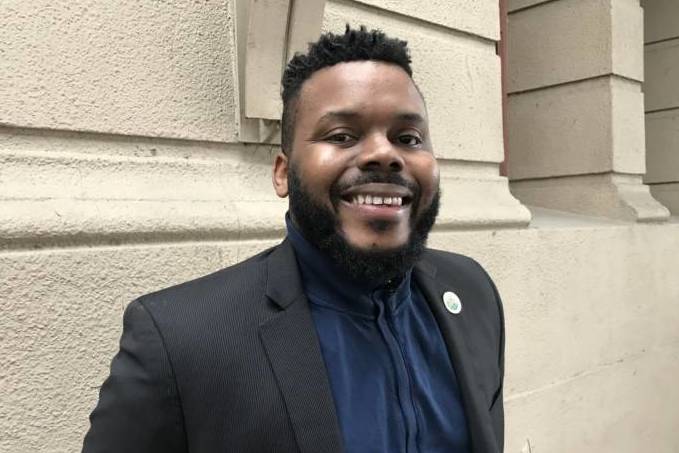Listen to our extended interview with Mayor Tubbs by clicking the play button above.
This week, more than 100 Stockton residents will receive $500 debit cards in the mail — no strings attached. It will be their second cash distribution since this city began an experiment in February to test whether offering residents a "guaranteed income" can alleviate poverty.
Stockton's 28-year-old mayor, Michael Tubbs, is the face of this test.
"I took the step to do the pilot and to be the first intentionally," Tubbs told KQED during an interview in Stockton, where a quarter of residents live in poverty.
"As someone who grew up in poverty, who moved up to the working poor, I knew there are a lot of tropes around poor people that are just not true," he said. "I thought I would trust no one else to tell that story and elevate that than myself."
